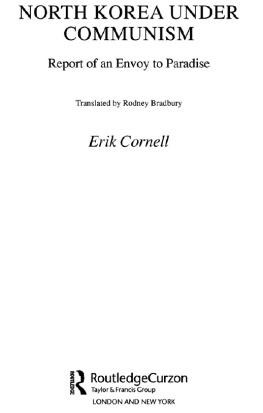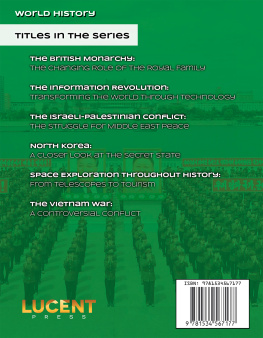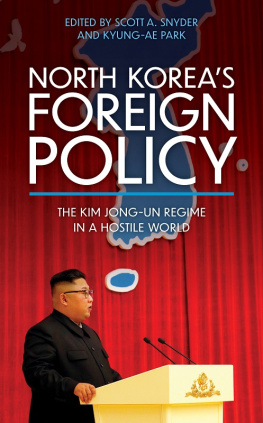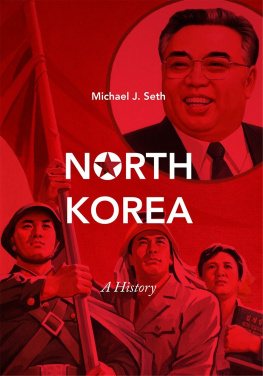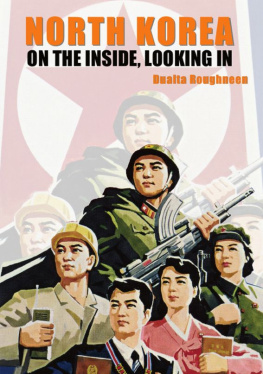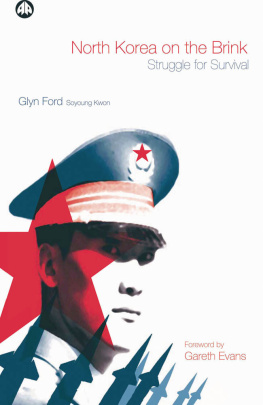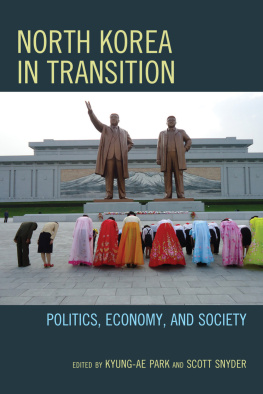After the collapse of the Soviet world North Korea has continued alone on the rigid communist way, in spite of its economic consequences that have led the state beyond ruin to famine. What are the reasons behind this peculiar choice of direction? Why did the leaders in Pyongyang pursue a policy abandoned not only by the Soviet Union but also by China and Vietnam?
The author of this book spent three years as Head of the Embassy of Sweden in Pyongyang which, until a few years ago, was the only Western embassy in North Korea. His unique experiences are related with descriptions of day-to-day life and with analyses of economic, political and ideological conditions. A picture is drawn of a society and a political order that defy both human nature and common sense.
1
HISTORICAL REVIEW
During the last few centuries, the Kingdom of Korea could have been regarded as virtually a vassal of the Emperor of China. It had contact only with Beijing and was so isolated from other parts of the world that it came to be known as the Hermit Kingdom. Koreans were not even prepared to become involved with shipwrecked foreigners, nearly always preferring to keep them in confinement until they could be sent across the border to China. When evaluating North Korean attitudes and North Koreas foreign policy, it is helpful if one understands that the regime in Pyongyang has still not been able to break with this tradition, but has, to a considerable degree, endeavoured to maintain its isolation from the surrounding world.
In the 1850s, the US Navy had forced Japan to open its borders to trade, and in 1866 it made an unsuccessful attempt to do the same with Korea. However, the Koreans managed to sink the warship General Sherman and kill the crew. Instead, it was Japan that successfully completed the task in 1876, and for a few decades Korea was opened up to the world. But, at the same time, Japan was gradually colonizing Korea, a process that was completed in 1910 when the peninsula was once again closed to foreign influence. It was not until Japans defeat in the Second World War that Korea regained its independence from Japan. While South Korea, after liberation in 1945, was progressively integrated into world society, North Koreas isolation continued, albeit as a rather odd member of the communist world.
The victorious allies had agreed that Korea should be divided along the thirtyeighth parallel, with the northern part being liberated by the Soviet Union and the southern part by the USA. The advent of the Cold War, and the increasingly strained relations between the superpowers, meant that the free elections intended for the whole of Korea never took place. Instead, the Republic of Korea (South Korea) and the Democratic Peoples Republic of Korea (DPRK; North Korea) were established in 1948. The frontline of the Cold War cut right across Korea, much as it did in Germany. However, in Korea this division led to the outbreak of war in 1950, during which the northern side rapidly captured all of the peninsula with the exception of the south-eastern corner. The Soviet Union was opposed to Taiwan representing China in the United Nations (UN) and therefore refused to take part in Security Council meetings, which meant that it was unable to use its veto. This made it possible for the USA to push through a resolution in which North Korea was branded as the aggressor. UN troops were sent in, and in a few months they not only recaptured South Korea but pushed on northwards towards the Chinese border. Then China intervened and it may be noted here that China has put up with a number of foreign concessions (such as Hong Kong and Macao) on its territory, but on two occasions, in 1895 and 1950, it went to war to prevent foreign control of northern Korea. On this occasion, the UN troops were pushed back and the front gradually stabilized, for the most part just north of the thirty-eighth parallel, which has since been the border between the two Korean states. Between the two states lies a depopulated area several kilometres wide.
The armistice agreement was not signed until 1953 and there has never been any peace treaty. To ensure that the agreement was followed an armistice commission was appointed, and because of its combatant status the UN could not be a member. Instead, four neutral countries were chosen: Sweden and Switzerland by the UN, and Poland and Czechoslovakia by North Korea. Since that time, Sweden has always been represented in the little negotiating village of Panmunjom, which is situated on the border and the only contact point between the two states. The members of the commission have lived on their own sides of the border. Passage between North and South Korea via Panmunjom has, in effect, been limited to members of the commission in the strict sense, that is only properly accredited members and no other citizens from the commissions member states. Following the collapse of Soviet power, North Korea sent the Polish and Czech delegations home and is now trying to have the armistice agreement annulled.
The Soviet Union installed a communist regime under Kim Il Sung, who had apparently spent the Second World War in Siberia and advanced to the rank of captain, or possibly major. The historical isolation of the northern area was thus reinforced. Following the immense destruction wreaked during the Korean War, an extraordinary reconstruction programme was embarked upon in the north, resulting in what seemed to be a remarkably successful industrialization programme, plus the development of agriculture. The communist countries rather looked down on their exotic poor relation, and wanted to force the country to become a part of the Council for Mutual Economic Assistance (COMECON) cooperation, primarily as a supplier of raw materials. But North Korea refused, because it wanted to develop an all-round economic base with modern industry. In as far as the shifting conditions allowed, North Korea complained about the way in which advantage was taken of the countrys isolation, particularly by the Soviet Union, in order to sell at a high price and buy at a low price regardless of world market prices. The antagonism between the Soviet Union and China, which became all the more marked during the 1950s, gave Pyongyang greater freedom to manoeuvre. Furthermore, the Cultural Revolution in China during which Red Guards were allowed to call North Koreas head of state, Kim Il Sung, the fat revisionist also made Pyongyang somewhat wary of its dominant Chinese neighbour, which for centuries had been the Koreans model, gauge and only known part of the outside world, in other words their entire frame of reference.

